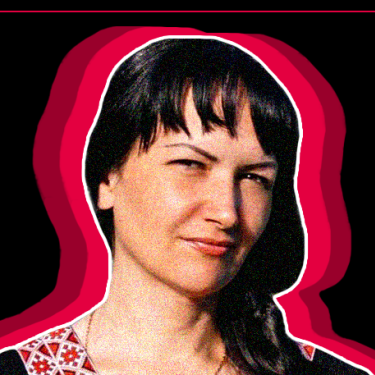Russian prison system is slowing killing Ukrainian journalist, Iryna Danilovych, denying her medical care

The state of health of Ukrainian journalist Iryna Danilovych, imprisoned in Russia following her arrest in Crimea in April 2022, is deteriorating. Reporters Without Borders (RSF) urges the Russian authorities to give her urgent access to medical care and will hold them responsible for her death if she is not treated and released.
Neurological problems, brain damage, loss of hearing... Iryna Danilovych's state of health is deteriorating, according to information received by RSF from her father. Since her imprisonment on trumped-up charges, the independent reporter from the Ukrainian peninsula of Crimea - a region illegally annexed by Russia in 2014 - has had no access to medication sent by her relatives to Zelenokumsk prison in south-west Russia, where she has been held since August 2023, after being arrested in Crimea in April 2022.
Her case is far from isolated. The prison’s local administration distributes medicine very infrequently and falls far short of meeting the needs of its approximately 1,000 detainees. Danilovych requires regular medical attention and RSF already sounded the alarm about her fragile state of health in October 2023.
“After her arbitrary arrest by the Russian occupying forces and her sentence to seven years in jail at the end of a sham trial, Iryna Danilovych is being deprived of medication and is being subjected to inhumane prison conditions. RSF demands urgent access to medical care for this journalist and we will hold the Russian authorities responsible for her death if she is not treated and released.
Silencing Crimea’s last independent journalists
A nurse by profession, Danilovych freelanced as a reporter for InZhir-media, a local news site, Crimean Process, which specialises in judicial cases, and Krym.Realii, the local branch of the US broadcaster Radio Free Europe/Radio Liberty (RFE/RL).
The harassment and intimidation by the Russian occupation authorities to which she had been subjected since 2016 increased during the Covid pandemic because of her coverage of the Crimean health system’s problems.
Snatched by members of Russia’s Federal Security Service (FSB) at a bus stop in Koktebel, a small town near the Crimean city of Feodosia, on 29 April 2022, she was sentenced by a Russian court eight months later to seven years in prison and a fine of 50,000 roubles (about 500 euros) on trumped-up charges of “illegally manufacturing, transporting or possessing explosives.” Since then, the Russian penal system has continued to persecute her and locate her far from her family.
The Russian authorities have been silencing the few remaining independent journalists in Crimea for nearly ten years. After Russia launched its large-scale invasion of Ukraine on 24 February 2022, the authorities stepped up their persecution of local journalists, arbitrarily arresting and convicting them in connection with their work.
